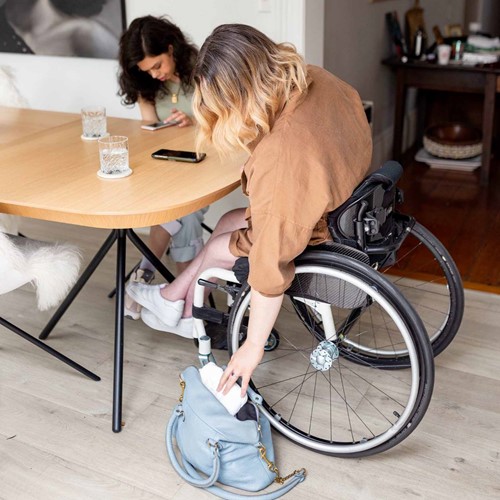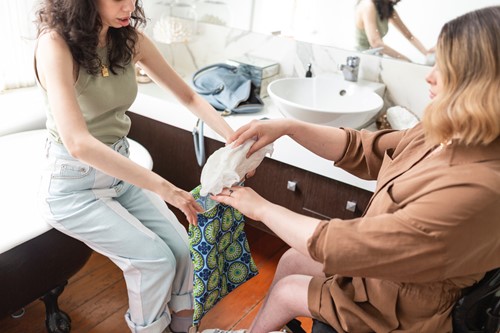A lot more comes with having a disability than what you see on the surface. Those unexpected things can be hard to deal with as you’re growing up. You can often feel like the messier bits of life with a disability are things we shouldn’t talk about, but that’s something we have to change, especially for the next generation of disabled people. It is only by promoting comfort with disabled people’s bodies and normalising aspects of disability that are more difficult that we can ensure horizons can be lifted and stigmas will change.

As Judith Heumann has said, independence is not always about doing things yourself, but rather, it is about being in control of how things are done. I didn’t learn this until later in my life - and growing up, I often felt like needing help toileting, or with personal cares, as a young adult, was something that I shouldn’t accept; but, if I were to spend energy on all my cares, then, I would have almost no energy to go about my day, succeed at work, or do things that I want to do. As I’ve grown up, I have learned that disability is so much about energy placement, deciding where you want to place your capability, and then getting support and choosing supports for when you need them.
Support can be in the form of a friend, reaching out to support services, but it can also be utilising products. Texi, by Independently You, is an example of a product that is seeking to help break down stigmas and support disabled people’s needs. Texi understands that oftentimes, single-use is the most accessible option, so they’ve created a single-use incontinence product for the disability community, whilst still investing in the environment by committing to planting a tree for every four packs sold.
Incontinence is something that many people with disabilities deal with, so often disabled people deal with difficulties behind closed doors, but that prevents us from coming together because often these issues impact more people than we realise, it’s time we come together to have these discussions. Texi is focused on championing everyone’s dignity and ensuring that people with disabilities see themselves and their needs celebrated, when I was growing up, if I had that, it would have meant a great deal and made it so much easier for me to come to terms with the support I need.

Now more than ever, there are expanding options to support disabled peoples dignity in personal cares, which means we are heading in the right direction.
If you’re still coming to terms with needing support for your personal care here are some tips:
- Seek to reframe support in your mind. Everybody needs support, people like Shane and Hannah Burcaw, who have created some fabulous content on normalising support with personal care.
- Stylise the products you need. There are lots of awesome ways you can stylise the products required for your personal care. From decorating your mobility aids to purchasing stylish bags to place your personal care products in. If you make it feel stylish and fitting for your personality, you can build confidence in what you are using.
- Watch some disability content. People like Sir Robert Martin have content here on Attitude, which highlights the amazing things achieved when people are supported in ways they need. It’s inspiring to see Sir Robert as a role model for support that enables disabled people to thrive.
- Create Terms. If you’re new to needing support with your personal care, write down the terms on which you want support and print them out or email them to your supporters so you can keep your terms front of mind and make sure everyone knows them.
- Choose products you love. When you need help with personal care, you get to choose the product you use, so pick products you believe in, or like, Independently You’s kiwi owned products are one great option.
No person is an island, and needing support is a part of life, and for disabled people that can be a struggle to adjust to, but ultimately, its time we change society, independence looks different to different people, and we should embrace support and needing assistance because that is what enables success.
*Images by Becki Moss


